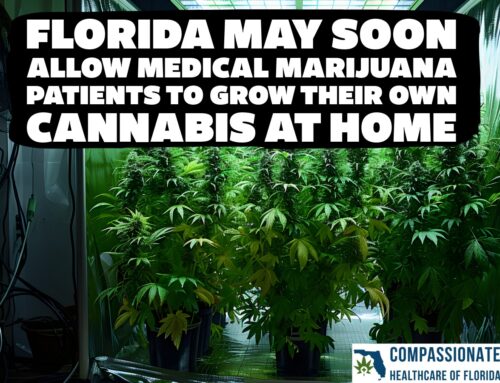New Research Suggests Medical Marijuana Access May Help Curb Opioid Deaths
The United States continues to grapple with an opioid crisis that has claimed hundreds of thousands of lives and touched nearly every community. For decades, opioid-based painkillers were widely prescribed for chronic pain and post-surgical recovery, but their high potential for dependence and overdose has made them one of the nation’s most pressing public health emergencies.
While efforts such as tighter prescription controls, expanded access to naloxone, and increased rehabilitation services have made an impact, new research is pointing toward another, less conventional tool in the fight: medical marijuana.
A growing number of studies suggest that access to legal cannabis may significantly reduce opioid overdose deaths. One recent analysis found that counties opening their first medical marijuana dispensary saw opioid-related fatalities drop by as much as 30% over a decade. Other longer measurements also show decrease mortality around 21%. This trend is gaining attention from public health experts, legislators, and patients alike.
How Medical Marijuana May Help Reduce Opioid Deaths
The connection between medical cannabis and lower opioid mortality rates likely comes from several overlapping factors:
Effective Pain Relief Without the Same Overdose Risk
Cannabis compounds like THC and CBD have been shown to reduce inflammation, calm nerve-related pain, and ease muscle tension. Unlike opioids, they do not suppress breathing, which is the mechanism behind most opioid overdose deaths.
Lower Risk of Physical Dependence
While cannabis can be habit-forming for some, it does not produce the severe withdrawal symptoms or escalating tolerance that opioids often cause.
Improved Overall Well-being
Medical marijuana can help patients sleep better, reduce anxiety, and manage symptoms without relying on multiple prescription medications. This may indirectly reduce the temptation to increase opioid doses over time.
The combination of these benefits can make cannabis a viable replacement or partial substitute for opioids, particularly for patients with chronic pain.
Reduction In Opioid Dose
Medical Marijuana has been shown to assist patients in lowering their overall dose of Opioid medication by 64–75% when patients use medical cannabis as an adjunct to opioid therapy.
Opioids vs. Medical Marijuana for Pain Management
Opioids earned their reputation as powerful painkillers, but their downsides are now impossible to ignore. In contrast, medical marijuana offers a different profile of benefits and risks:
| Opioids | Medical Marijuana |
| Highly addictive | Low risk of addiction for most |
| High risk of fatal overdose | No recorded cases of fatal cannabis overdose |
| Physical dependence develops quickly | Can often be used without increasing dosage |
| Common side effects: constipation, sedation, nausea | Side effects vary; often milder and temporary |
It’s important to note that cannabis is not risk-free, and it may not be suitable for everyone. However, for many patients — especially those who have struggled with opioid side effects or dependency — it can be a safer long-term option.
Research and Public Health Perspectives
Public health experts are cautiously optimistic about the role of cannabis in addressing the opioid epidemic. While correlation does not prove causation, the consistency of findings across multiple studies is noteworthy. In states where medical marijuana laws have been implemented, opioid prescription rates tend to drop, and fewer patients appear to develop long-term opioid dependence.
One theory is that cannabis offers a “gateway away” from opioids, giving patients an alternative before they reach a crisis point. Another is that legal access creates a cultural shift, making healthcare providers more comfortable recommending non-opioid therapies.
Still, researchers stress the importance of more comprehensive studies, especially those that track patients over time and compare cannabis-based treatments to other non-opioid pain management strategies.
Florida’s Approach to Medical Marijuana
Florida’s medical marijuana program is one of the largest in the nation, with more than 922,000 registered patients as of August 2025. Qualifying conditions include chronic nonmalignant pain, cancer, epilepsy, PTSD, multiple sclerosis, Crohn’s disease, and more.
Under state law, patients must be evaluated by a licensed physician who is certified to recommend cannabis. If approved, they can obtain products such as tinctures, capsules, vaporizers, and topicals from licensed dispensaries.
Florida’s approach allows for all methods of use, flexibility in dosing and product selection, enabling patients and doctors to work together to find the most effective regimen.
Addressing Stigma and Misinformation
Despite decades of research into its medical uses, cannabis still carries stigma in some communities. Many people associate it only with recreational use or assume it lacks scientific support. However, an increasing number of peer-reviewed studies and patient case reports show that cannabis can be a legitimate and effective treatment for various conditions.
As more states publish data showing reductions in opioid use and related deaths, attitudes are slowly changing. Lawmakers who once opposed medical marijuana are beginning to reconsider, especially in light of its potential role in addressing a national health crisis.
The Road Ahead
The idea of medical marijuana as an opioid alternative is not about replacing one drug with another indiscriminately. It’s about offering patients safer, more sustainable choices for managing chronic pain and other qualifying conditions.
Moving forward, public health officials and lawmakers will need to balance increased access with continued research, education, and safeguards to ensure patients receive high-quality care.
For patients already living with chronic pain, anxiety, or other qualifying conditions, this shift in perspective could be life-changing. While opioids will still have a place in certain medical situations, the growing acceptance of cannabis in clinical settings offers hope for a future with fewer overdoses, less dependency, and better overall patient outcomes.
The opioid crisis demands new, evidence-based solutions. Medical marijuana is emerging as one of the most promising tools available — not as a cure-all, but as a meaningful part of a broader strategy to reduce harm and improve lives.
FAQ’s




